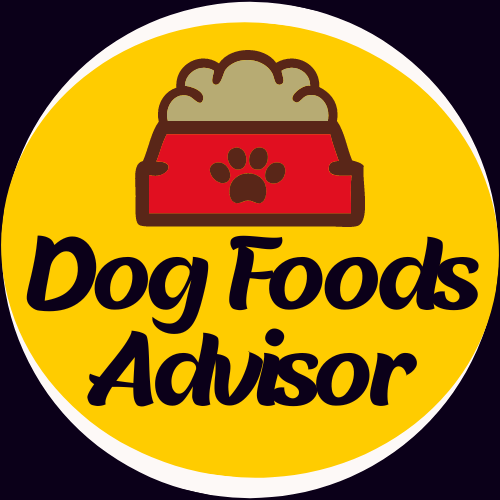The importance of consulting with your vet before switching to breed-specific dog food
Are you considering switching your furry friend’s diet to a breed-specific dog food? Hold on, pet parent! Before you make that switch, have you consulted with your trusted veterinarian yet? You might be thinking that breed-specific dog food may provide tailored nutrition for your pooch’s unique needs.
However, rushing into the decision without proper consultation could lead to more harm than good. In this blog post, we’ll dive into the reasons why consulting with your vet is crucial before making any changes in your pet’s diet and how it can benefit their health in the long run!
Table of Contents
- What is breed-specific dog food?
- Why to switch to breed-specific dog food?
- Benefits of switching to breed-specific dog food?
- Risks of switching to breed-specific dog food?
- Consult vet about changing to breed-specific dog food?
What is breed-specific dog food?
There is a lot of debate surrounding whether or not certain types of food are better for dogs, with some people insisting that all food must be nutritionally balanced and suitable for all breeds, and others believing that there are specific brands and types of food which are specifically tailored to the needs of certain breeds.
While it may be tempting to switch your dog to a specific brand or type of food in an attempt to cater to their specific dietary needs, it is important to first consult with your vet. With their guidance, you can choose the best type and brand of food for your pet based on their individual requirements.
Why to switch to breed-specific dog food?
There are a few reasons why you might want to switch to breed-specific dog food. The first is that the food is tailored specifically to the needs of your particular breed of dog. This means that each type of food contains nutrients and ingredients that are specific to the breed of dog. These foods can provide your pet with the best possible nutrition, which will help them stay healthy and active.
Another reason to switch to breed-specific food is if your pet has undergone surgery or had a health condition exacerbated by their current diet. By switching to a diet specifically designed for their breed, these pets may see some improvement in their symptoms.
Finally, some people choose to feed their dogs dietary supplements made from specific breeds of dog because they believe this provides their pets with extra vitamins and minerals not found in other diets. Consulting with your veterinarian before making any changes is always advised, as every dog is unique and response to dietary changes will vary.
Benefits of switching to breed-specific dog food?
Breed-specific dog food is known for being high in certain essential nutrients and antioxidants, which are important for optimal health. Some of the benefits associated with switching to a diet specifically formulated for your breed of dog include:
- Improved Thyroid Health: When dogs consume a diet that is tailored to their specific breed, they tend to have better thyroid health. This is due to the fact that each breed has a different set of nutritional needs and can thus benefit from specific supplements and foods. Better thyroid health can lead to higher energy levels, fewer problems with weight management and improved coat quality.
- Reduced Allergy Risk: A diet specifically formulated for your dog’s breed is likely to be lower in allergy-causing substances than a general canine diet. By consuming a food that matches their unique dietary requirements, you reduce your dog’s risk of developing common allergies such as eczema or hay fever.
- Greater Digestibility: Foods that are specially formulated for one particular breed of dog are generally more digestible than those intended for all dogs. This means that your dog will consume more nutrients and less waste from the meal, leading to healthier digestion overall.
- Increased Immunity Levels: Dogs with good immunity levels are less likely to get sick in general and may even be able to fight off diseases faster if they’re eating a diet designed specifically for their breed. When intestinal flora (the good bacteria in the gut) is balanced, the immune system is stronger overall.
- Better Bone Health: Dogs that consume a diet that is specific to their breed tend to have better bone health. This is because there are numerous nutrients and minerals in different breeds’ diets that help support strong bones and avoid the development of osteoporosis.
Risks of switching to breed-specific dog food?
Breed-specific foods are often touted as being superior to general food because they contain all of the specific nutrients and proteins necessary for that breed of dog. However, there is some evidence that these foods may not be the best option for your pet.
The first issue with breed-specific food is that it’s simply not possible to make a diet specifically tailored to each breed of dog. While this type of food may contain more specific nutrients and proteins than general kibble, it also contains larger quantities of artificial ingredients, fillers, and byproducts. This can lead to a range of health problems in dogs who eat these diets regularly, including metabolic problems, gastrointestinal issues, calcium deficiency, and tooth decay.
Another downside to feeding your pet a diet based on breeds is that it can actually discourage mixing between different breeds. When dogs are confined to eating the same kind of food, they start to develop preferences for that food over other types and begin perceiving other dogs as threats or prey. This can lead to aggression or competition between the pets and may even cause them to be adopted out prematurely due to behavioral issues (such as separation anxiety).
In order to ensure the best possible health for your dog, it’s important to consult with your veterinarian before making any changes to their diet. Together, you can create a plan that provides all of the nutrients and proteins your pet needs while minimizing potential risks associated with relying on breed-specific foods alone.
Consult vet about changing to breed-specific dog food?
Before making a significant switch to breed-specific dog food, it is important to consult with your veterinarian. Your vet can help you to make sure that the diet is optimal for your pet’s health and well-being. They may also be able to provide advice on any potential side-effects of the diet change.
In some cases, switching to breed-specific food may be necessary in order to prevent certain medical conditions in your dog. Always make sure to discuss any changes you plan on making with your veterinarian first.
If you are already feeding your dog a diet specific to one breed, it is generally safe to continue doing so. There is no need to make a big switch right away – just keep an eye on your pet’s health and make adjustments as needed.
Conclusion
When it comes to adopting or purchasing a new pet, there is no wrong answer – as long as you and your pup are on the same page. But when it comes to choosing which type of pet food to feed your furry friend, did you know that consulting with your veterinarian is an important first step?
That’s because different breeds of dogs have different nutritional needs, and feeding them the wrong type of food can stunt their growth, lead to health problems down the road, and even kill them. So before making any major changes to your dog’s diet, be sure to talk to your vet about what would be best for him or her.






